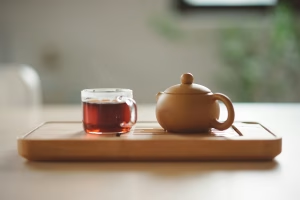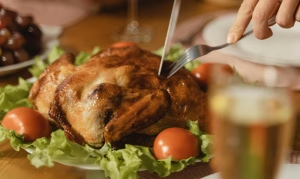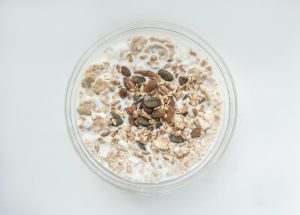Weight Loss
What Should We Be Drinking?
 How much water should we be drinking? Is cold water okay? Is coffee healthy or not, already? What about decaf? What about green tea? Green juices? Prune juices? Sparkling water??? Please tell me sparkling water is OK! It’s all I’ve got…
How much water should we be drinking? Is cold water okay? Is coffee healthy or not, already? What about decaf? What about green tea? Green juices? Prune juices? Sparkling water??? Please tell me sparkling water is OK! It’s all I’ve got…
Across the generations (and mediums) there have been many hydration gurus, and I suppose in this blog I’m throwing my hat into the ring, albeit really as just a hopefully qualified echo of Chinese medicine’s biological perspective.
Sparkling water is OK, but can irritate the bladder—should be kept to 1/day.
Room temp water is best, ideally half of our weight in ounces each day. Cold drinks can impair digestion, but again, once a day outside the context of a meal is no big deal, imo.
Juice is worse than people think—green juice not quite as good as people think. Green juices, without the sugars of fruit inside them, are fine, but should not replace real meals where salivary amylase is generated, we actually eat, and chew whole (green) vegetables.
One coffee/day should be fine for most people, but obviously has an excitatory and diuretic effect, so if one suffers with a lot of heat or dryness symptoms, should be minimized. These can include everything from insomnia and irritability to bloating or lack of appetite (dryness of digestive enzymes).
Green tea is preferable in people with “heat patterns,” and/or after a night of eating red meat, which can generate heat in the intestines. Again, because of its bitterness, people who tend to nausea, diarrhea, or lack of appetite should steer clear of green tea, and reach instead for…
PU-ERH TEA! Probably the healthiest thing one can drink besides clean, room temperature water, pu-erh is a black tea known for its naturally occurring pre and probiotics that enhance digestive and gut barrier function, the latter of which gets compromised by stress, medications, or alcohol. And I don’t know anyone who doesn’t check off at least one of these. Best taken hot.
I try to limit myself to 2 caffeinated beverages/day (I think no one should have more than 3), which are routinely a cup of Purity black coffee, followed by a cup of pu-erh, from either ARBOR or YUNNAN SOURCING, both of which offer organic and fair trade, high quality products. Highly recommend!
Acupuncture’s Abdominal Diagnoses

Contrary to popular belief, there is a great deal of overlap between Chinese and Western medical diagnoses and systems. A good clinician from either should inquire about your metabolism—fluid or otherwise. How often do you pee and poop? Drink water or eat? We both feel patients’ pulses, at the wrist and sometimes even the carotid (throat) and dorsal pedis position on top of the feet. Additionally, I was reminded while (binge)watching The Pitt that Chinese medicine is not the only paradigm that places emphasis on abdominal palpation.
In Western medicine, my understanding is doctors are feeling for any number of things: fluid retention, organs size and shapes, masses or tumors, tenderness, or pain.
Our assessment process is not much different, though as expected, most acupuncturists are less adept at detecting tumors or misshapen organs, and most doctors are not applying their findings to a global/holistic diagnosis. They are ruling out emergency, which has its own obvious value. Acupuncturists, instead, are searching more for subjective signs to fit a pattern diagnosis.
A COLD abdomen means metabolic organs are lacking in blood or healthy gases and requires moxibustion therapy and/or herbal families such as dry fried ginger or aconite stone.
A SOFT abdomen generally indicates fluid retention because of some subjective deficiency of mitochondria and might require herbs such as poria mushroom and tangerine peel to drain the excess fluids, but also aconite stone to engender cellular energy and adrenal function with the hope of preventing further fluid retention.
Tension in the upper abdomen might indicate inflammation, dryness, and a tendency to constipation, whereas tension or sensitivity below the umbilicus points more towards weakness again, and possibly diarrhea. The former often requires rhubarb root, whereas the latter might need a combination of ginseng and evodia fruit. The wrong herbal formula will make symptoms temporarily though immediately worse.
Tension anywhere can indicate local fluid retention and/or blood stagnation that may or may not be the final piece of the puzzle in getting some chronic illnesses to resolve. Local needling and moxibustion can be helpful, as can herbal formulas with peach kernel or peony root.
To the left of the abdomen pertains to metabolic function, specifically and especially between the pancreas and portal vein to the liver, as it is said in Chinese medicine: “Liver blood ascends on the left (side of the body).” In its ascension it acts as a courier for healthy gases and immunological substances, which is why tension here might point to immunodeficiency.
To the right of the abdomen pertains more to the reproductive organs, ovarian function or otherwise. It might also be implicated in chronic constipation, so if you suffer from both for example—menstrual irregularity and constipation—the focus of treatment should be on the lower right abdominal quadrant, hypothesizing that once the bowels regularly move the reproductive organs can regularly function, sans obstruction.
How does your abdomen feel? Is it tight, taut, and thus “dry,” or soft and yielding, thus “damp?” Excessively cold or hot? Tender? Have you ever thought about how it can and should inform your physician? BTW, The Pitt was great! Highly recommend.
Tryptophan Foods & its Benefits

The ancient Chinese stressed the importance of eating foods that are “rich in qi and blood,” which upon scientific reflection, was in many cases referring to foods that are dense in the amino acid, tryptophan. Why?
The amino acid, tryptophan, is the precursor to the neurotransmitter, serotonin, which in turn regulates sleep and emotions, also digestive function, blood clotting, bone, and cardiovascular health. Circling back to Chinese medical terms, when your acupuncturist says that your gut is reliant upon strong and healthy “qi” to produce strong and healthy blood, this is what they mean. We need amino acids to produce not only literal blood, but also the neurotransmitters whose functions are synonymous with that of “the blood,” from a Chinese medical perspective.
Most people think of tryptophan around Thanksgiving and its effects of making us tired after the enormous holiday meal, but that fatigue is actually more likely due to the profound overconsumption of carbs and calories.
Other sources of tryptophan besides turkey are as follows, complete with warnings of their potential side effects and how to mitigate them:
- Chicken
- Is mass produced, so be sure to always consume in good, organic quality. Also can overstimulate the liver vessel, so ideal to consume with sour foods, such as lemon or sauerkraut to offset this effect. Unfortunately, the worst way to consume chicken is with hot sauce or spicy foods, which potentiates this effect.
- Beef
- Can generate excessive heat in the intestines, so should be consumed alongside bitter greens. Again, sad news: the worst way to consume is alongside alcohol, which can potentiate the heat effect. Eat plenty of bitters to counteract!
- Fish
- Beware of high mercury fish, as my wife always reminds me! Other than that, as the many centenarians of Okinawa and the Mediterranean know, there are little side effects to wild fish
- Eggs
- They’re just too expensive these days, and the inorganic variety are a problem. Other than that, eggs are nearly as perfect as fish 🙂
- Dairy
- Dairy has health benefits, but it is very cold and damp in its physiological behavior in the body. If you tend to low appetite, brain fog, diarrhea, bloating, or skin conditions you should avoid as much as possible.
- Soy
- Soy is also cold and damp and should be cooked alongside plenty of spices, onions, garlic, ginger, and even hot peppers, to offset its effect.
Besides tryptophan, another Thanksgiving cliche that benefits qi and blood is gratitude 🙂
Transitioning from Summer to Fall

Although it remains deftly hot and humid, according to the traditional calendar and evidenced in the shorter days and longer nights, we now find ourselves in the transition between summer to autumn.
Summer corresponds with the heart and central nervous system, autumn with the lungs and immunity, but each quarterly transition of the seasons corresponds with the gut and microbiome, thereby further underscoring the importance of digestion in engendering all other organ systems. This one might be most directly significant, as in Chinese medicine’s cycle of the five elements earth is “mother to” metal, which is to say the stomach is primarily connected to pulmonary health. Anyone who’s ever suffered with an asthma attack due to dairy consumption or sleep apnea due to a weight problem can attest.
To compile the challenges posed by American diets and grocery options, we are simultaneously confronted with the humidity, which might further aggravate pre-existing dampness in one’s gut, depending on their constitution, diet, and body type. As always, I recommend going gluten, dairy, sugar, and alcohol free as much as possible.
To avoid gluten, there is always rice or great gluten free pasta brands now, such as Glutiniete. To avoid dairy, you can occasionally sprinkle nutritional yeast on foods and/or make vegan parmesan cheese with this simple recipe:
To avoid sugar I recommend increasing your tolerance for dark chocolates, and/or eating spoonfuls of nut butters with a touch of maple syrup or honey. If you must have alcohol, then vodka, tequila, mezcal, and organic wines are preferable. People often forget (especially when seeking a buzz) that grapes are always on the dirty dozen list, which means their inorganic versions are ridden with pesticides.
Those are a lot of DONT’s, I realize. As for DO’s:
- Eat a warm breakfast with protein: Eggs, oatmeals, congees, etc.
- Sweet potato, sweet potato, sweet potato! An excellent digestive aid and coming into season in fall. I like to roast them either with salt, pepper, and garlic, or cinnamon and maple syrup. For the latter I add sliced apples for my toddler in the last 15 minutes.
- Small amounts of fermented pickled foods, such as kimchi, sauerkraut, or pickles for their naturally occurring probiotics.
- Pu-Erh tea instead of green in the morning, also for its naturally occurring fermentation. Green tea, even when consumed hot, has a cold quality that can harm weak stomachs.
- Hot ginger, licorice, and/or barley tea in the evenings.
Finally, in our classical texts it is said that excessive standing harms the kidneys, excessive celebration harms the heart, and excessive sitting harms the stomach. What is meant by the latter is something the ancient Chinese understood and has only in recent generations become common knowledge in the west: sedentary lifestyles compromise metabolism. No matter how well we eat, it won’t much matter if we never get up and move.
Breakfast Congee Ideas

For anyone who is vegan, sensitive to eggs, or just dislikes them, here is a breakfast idea I’ve been experimenting with, both for the sake of variety and, well… experimentation.
In China, (white) rice congee is a common breakfast, often with egg and pickled vegetables, although I realize in the States rice is rather vilified for being a simple carb and high on the glycemic index. While this might be the case, it is also a food that is very gentle on the stomach and internal organs, which from our perspective aids in absorption and digestion, and in the proper dosages can be beneficial. However, for those who can’t get past the glycemic index, I recommend using quinoa, millet, or amaranth.
1 cup of your grain of choice
5 cups of liquid (if you’re going to make the sweeter, I recommend some kind of dairy-free milk—if you’re going for the probably healthier, more Oriental style I recommend just water or either vegetable, beef, or chicken broth) Oils don’t mix as well with the sweet flavors so if you’re making the sweeter version be sure to stir often so as to avoid sticking to the pot.
Boil and simmer about 15-25 minutes, or until it is the consistency of porridge.
Treat the sweet version like you would oatmeal: Top with berries, granola, as little maple syrup as you can discipline yourself to, cinnamon, and/or nuts if you like.
For the Asian version I recommend leftover vegetables and/or pickled cabbage or kraut. Plus, an over-easy or boiled egg if you want the best of all worlds.
Enjoy warm if possible! For those of us with babies or toddlers, we long for the days when we will return to eating hot food.
Whatever you eat, EAT BREAKFAST. I cannot stress this enough. They said breakfast is the most important meal of the day because it is, not because grandma said it, but because science and biology do. Here is a link to an NIH study correlating the skipping of breakfast with increased insulin resistance and risk for diabetes: https://www.ncbi.nlm.nih.gov/pmc/articles/PMC7246451/
I like coffee as much as anyone, but coffee alone (or with a piece of toast) is not breakfast. Protein and/or fat should be consumed, preferably in great quantity.
Nor do I doubt the potential benefits of intermittent fasting, but it is more biologically aligned to skip dinner—not breakfast. If this is impossible, maybe a later breakfast, like 9am? Supposedly, any longer than 2-3 hours after waking constitutes “skipping breakfast,” which is to say the insulin resistant mechanism is set in motion by that time.
If you have no appetite for breakfast this probably indicates your dinner being not fully digested and some metabolic syndrome at work. Please reach out—or try licorice and/or ginger tea 🙂


